This is what food justice looks like
A 9/11 fireman finds his calling in connecting kids and collards
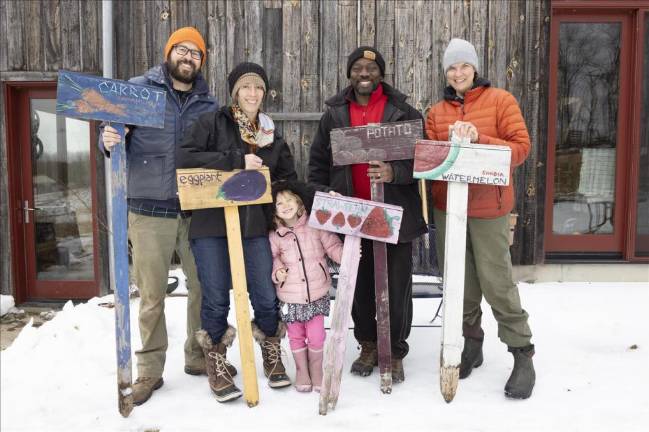
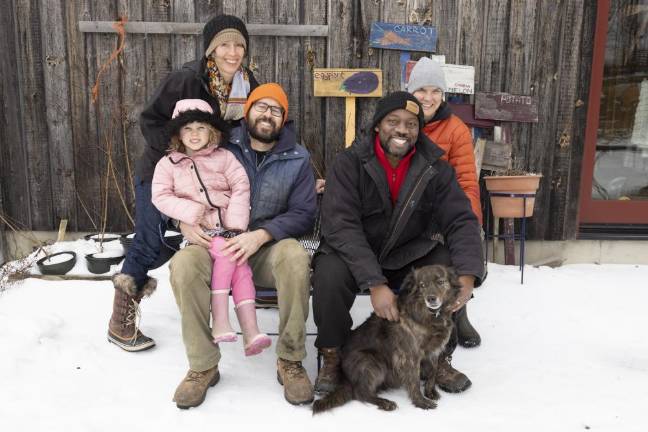
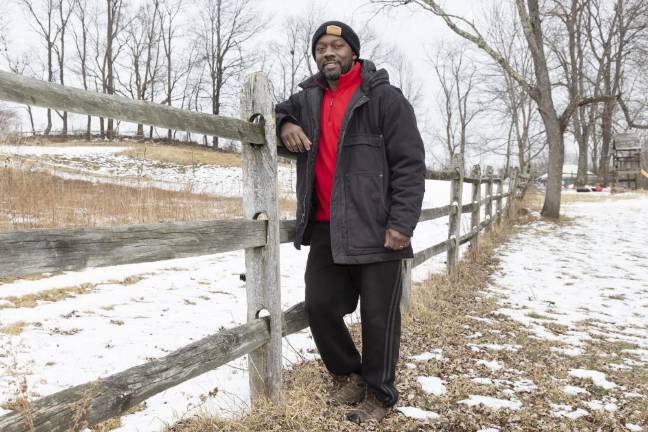
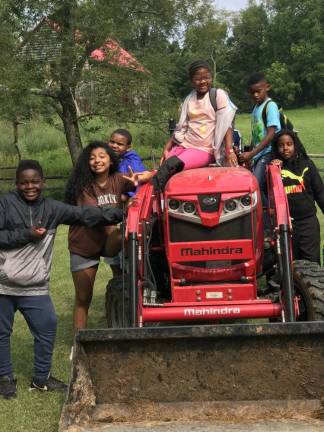
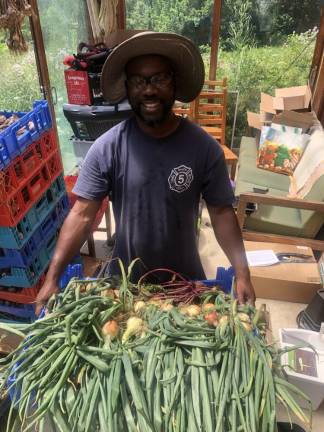
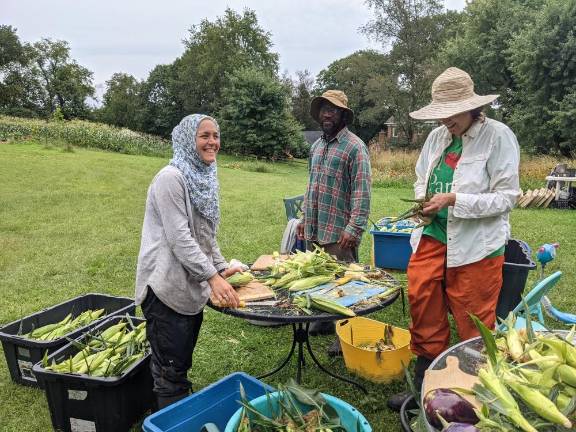
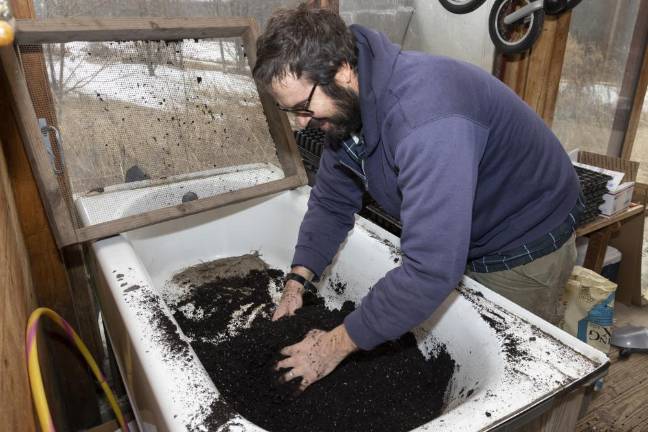
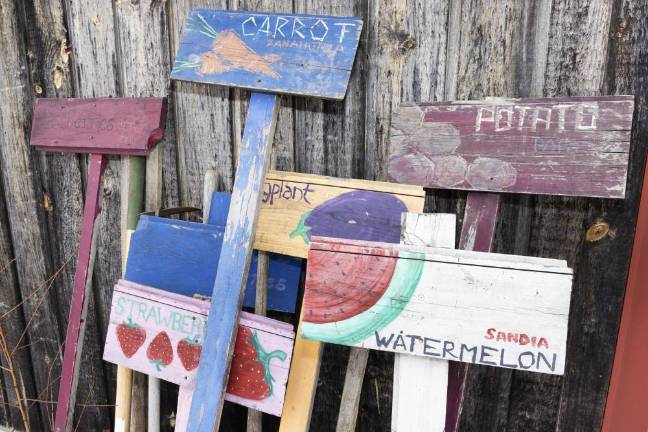
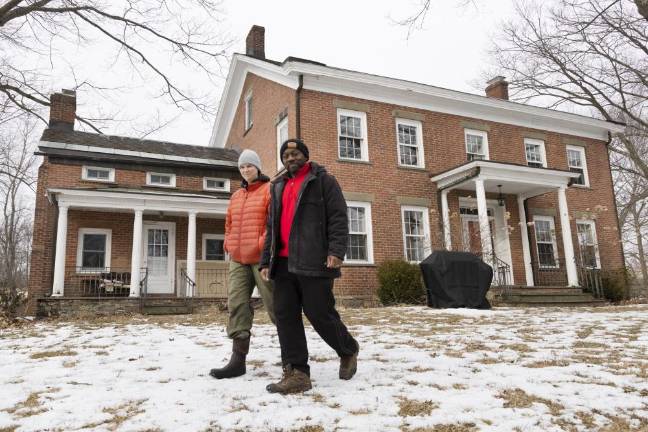
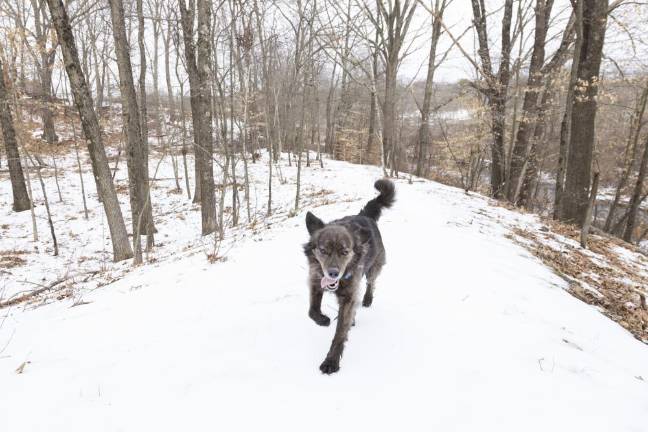
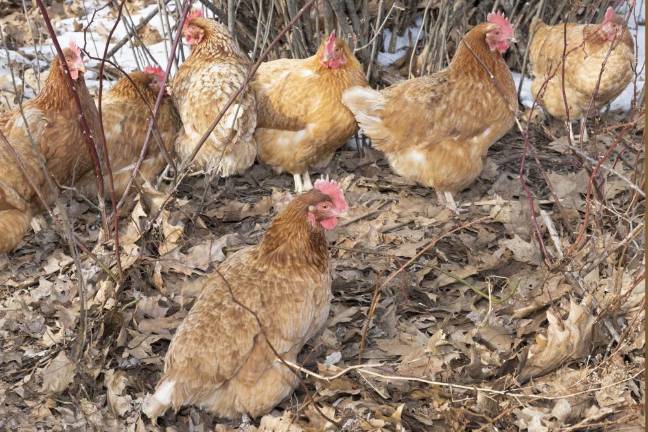
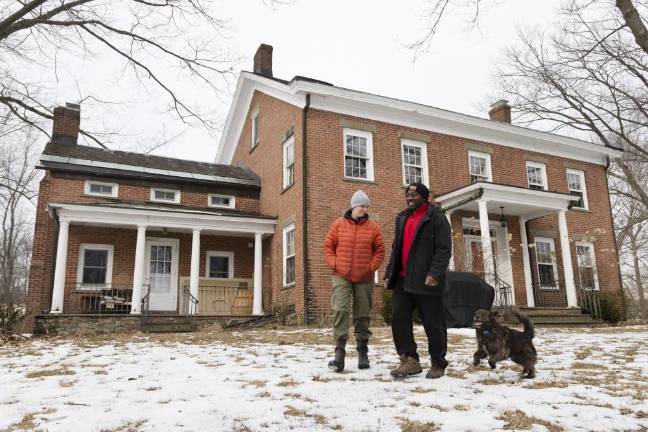
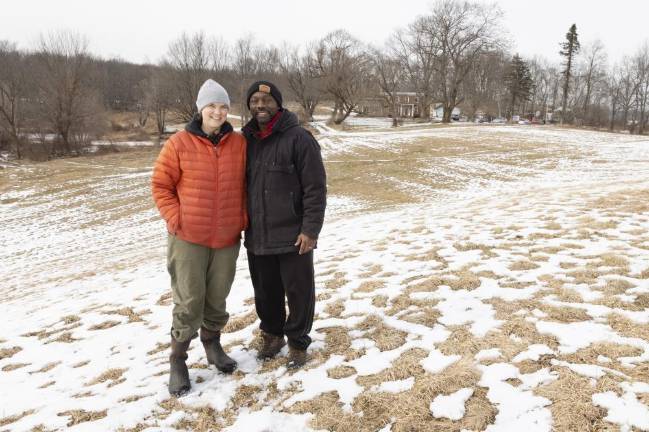
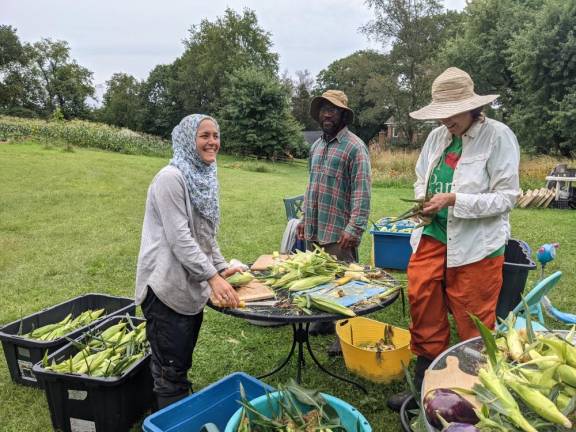
A warm, earthy smell drifted in from the snow-covered fields as I pulled up to Freedom Farm – how welcome in the doldrums of winter. The herd of dairy cows at nearby Freedom Hill Farm, which graze these pastures in the summer, had recently returned the gift in the form of fresh manure, newly laid on the beds in preparation for the forthcoming planting season.
Teo, the farm’s lovable rescue dog, greeted me by way of the sniff test (apparently, I passed) before I entered the 1850s farmhouse to meet Edgar Hayes: collard connoisseur, preacher, farmer, retired NYC firefighter and co-founder of Freedom Farm Community, a faith-based intentional community devoted to growing and sharing clean food.
It was a long road here for Hayes, a city boy who grew up moving around New York City: Manhattan, Brooklyn, Staten Island. His family was on welfare, which – in a time before coupons were accepted at farmer’s markets – meant a lot of canned vegetables.
But even then, said Hayes, “I’m more of a tree person. I was never a concrete person. So when I was younger in Brooklyn, I used to go to the Botanic Gardens to get away. I just needed space away from this concrete, tall-building style of living. When I was in Manhattan, I would go to the Cloisters. You know, I’d take the elevator all the way up and then just walk around.”
It was at St. John’s University that Hayes had the first stirrings of his food epiphany. A campus minister invited him to attend a retreat on non-violence at the Agape Community in central Massachusetts, stalwarts in the Catholic peace and justice movement. “Out of all the stuff we learned, the thing that blew my mind was they went into the garden, pulled out food, and made it,” recalled Hayes. “And that food was part of the meal that we ate. Yeah, I had never seen that before, growing up in the city.” The seed had been planted.
It wasn’t until Hayes met his wife-to-be, Ann Rader, in Washington, DC in the mid-90s that the vision started to take shape. Each was doing a year of service after finishing college. Rader, who holds a master’s in Theological Studies from Wesley Theological Seminary, shared her vision for a farm centered around the idea of exchange — of goods, services and people — between rural and urban communities. “She thought I’d be weirded out by it,” said Hayes.
Fast forward 25 years and two kids later, Hayes and Rader are living their dream: running a 59-acre nonprofit farm in Middletown, NY, built around their deep-rooted Christian faith.
But we’re getting ahead of ourselves. As aspiring farmers are all too aware, land access is a long road. Finding the perfect piece of earth to call your own is like striking gold — requiring patience, a bit of luck, and cooperative weather.
The couple first visited the house they now call home in 2000. It was pouring buckets, so they could only explore the house. The color-happy owners had painted every room a different hue, and the walls showed signs of bubbling, indicating water damage. Not for us, they thought.
Four years later, they visited a beautiful piece of property in the same vicinity. It was a perfectly clear, sunny day, “and we just fell in love with the land because we were looking for water, woods, pasture, and hills and it had everything,” recalled Hayes. When they made their way to the house, something seemed familiar. They’d been here before. It was the rainbow-roomed house with bubbly walls. The land had found her stewards and called them back home.
Even after purchasing their land in 2004, Hayes remained a full-time New York City firefighter until March 4, 2020, his pre-planned retirement coinciding weirdly well with the start of the pandemic lockdown. He was a fireman for two decades, serving in the aftermath of 9/11, a day he lost 18 “brothers.” Working on “the pile,” Hayes was part of the bucket brigade, helping to clear debris and inspecting voids for remains.
Like many who lived through that experience, Hayes battled depression in its wake. He spoke with a counselor from the Mennonite Disaster Service — part of the Manhattan Mennonite community he and Rader were living in at the time. The guilt of being alive, when his brothers had fallen, was crushing. The counselor observed, “You know, Edgar? When you talk about the fire department and the future... it’s different when you start talking about the farm.”
For another few years, Hayes and Rader lived the 5:2 lifestyle — city during the weekdays, country on the weekends. They finally decided to move up fully when Rader was pregnant with their second son, Micah. Anyone who’s made the transition from city living to country life knows the dance. You’re trying to figure out who you are, feeling like your new Carhartt overalls and Muck boots just don’t quite fit...yet.
“We didn’t know anything, but we were excited,” said Hayes, of their first planting season. “We tried to grow pumpkins in August,” he laughed. “You know, [you’re supposed] to start that in May. And we did plant zucchini, but we would leave and then we come back on the weekend and there was this massive thing!”
Their small garden patch near the house became a haven for Hayes. “When I came home [from the city], I’d make a left, go into the garden,” he said. “So I didn’t really know the land. The land for me was focusing on the garden.” Outside of the garden though, like many of us, Hayes struggled to find balance between being a firefighter, a father to two young sons, a husband, and his calling, ministry.
He had realized, during his year of service in D.C., that working with youth was what he ultimately wanted to do with his life. The plan was to go to seminary to become a youth minister once he finished with the fire department. But instead of seminary, he found an alternate route. A certificate program through the Presbyterian Church allowed him to train to become a preacher while carrying on with his firefighting duties.
Hayes is now a lay pastor and preaches at Presbyterian churches in the area. His older son, Josiah, is attending St. John’s University, just like his father, and this year, Hayes decided to dial back his preaching duties to two weeks a month so he can spend more time with Micah. The basketball ball court is calling their names.
‘Growing into our name’
Building and living in community has been one of the couple’s “deepest longings and prayers for a long time,” recounts Rader in their recent farm newsletter. Last summer, that box got checked when Hayes and Rader welcomed fellow farmer/pastor couple Will Summers and Sarah Henkel of Rockland County, and their kids Leland and Robin to the Freedom Farm community. “It kind of feels like we’re growing into our name,” said Rader.
Welcoming the Summers-Henkel family as full-time co-residents allowed Freedom Farm to grow nearly twice as much food, sharing it with local food pantries, youth camps, and organizations like Proyecto Faro (Project Lighthouse), which serves the immigrant community in Rockland County.
“We used to send down a lot of lettuce. We asked them, what would you like more of?,” said Hayes. The reply: more tomatoes, peppers and eggplant. All well and good, but “I can’t give up the collards,” said Hayes. “I was like, yeah my thing is greens... the greens gotta stay.”
Freedom Farm’s youth ministry includes a partnership with nearby Camp Deerpark, a Mennonite camp dedicated to serving inner-city youth. Once a week during the summer, visiting campers get their hands dirty in the garden and journal on topics like growing food, what’s happening in their lives, or bigger themes like racism. At the root of many of the issues these kids face, says Hayes, is a lack of self worth. “The discomfort and unease that these children are going through is that they don’t have that self love, or that they’ve heard from those around them or society or whatever the media is telling them that they’re not worthy.”
When I ask Hayes about a memorable student, it only takes him a second to recall the story of Timothy Holmes, a teenager they had known since their time in the city. When Hayes had asked the teenage Holmes what he’d learned during his week on the farm, he said, “You know how people view us and how God views us, and understanding the difference, and helping us to see that we have to go with God... that we are all worth it.” Holmes is now ministering to college students himself.
Hayes, for his part, is growing into his own as a one-of-a-kind farmer. “Last year I started circles,” said Hayes. Circles, I learned, are areas in a field that are left un-mown. The grass is mulched with leaves and cow manure and allowed to compost. “You know that relationship of give and take: not to take too much and to make sure it’s replenished? That’s what we want to teach the young people when they come here,” said Hayes, “especially the ones from the city like me.”